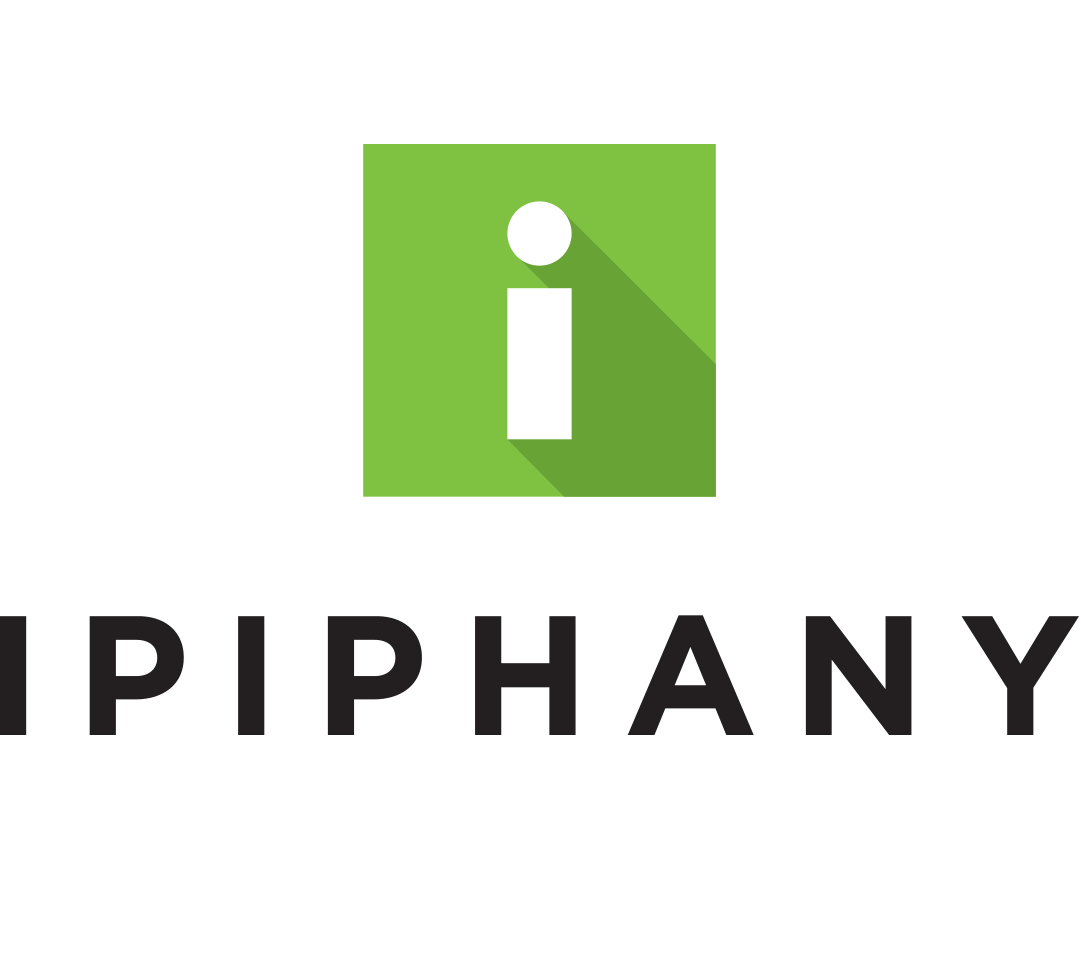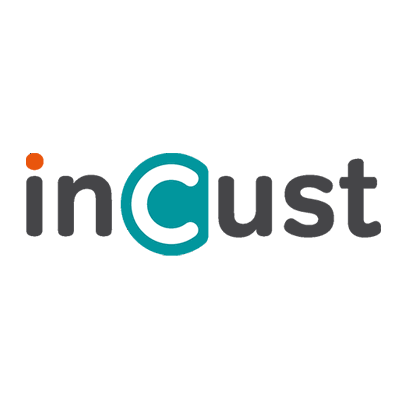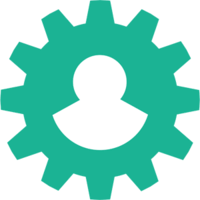What Is Customer Data Platform?
In order to generate unified customer profiles, firms can use software called a Customer Data Platform (CDP) to gather, arrange, and analyze consumer data from various sources. This enables companies to provide individualized experiences across all channels and have a 360-degree picture of their clients. All client data, including demographics, browsing and purchase history, and interactions across many touchpoints, are centrally stored in a CDP.
It combines information from several sources, including email marketing platforms, social media, website analytics, and CRM systems, and employs artificial intelligence and machine learning to find trends and insights. The capacity of a CDP to generate a single, thorough customer profile that is updated in real-time is one of its primary advantages.
By doing this, companies are better able to comprehend their clients' needs and preferences, which helps them develop offers, recommendations, and marketing efforts that are specifically focused. Additionally, by offering a consolidated and secure platform for handling consumer data, CDPs assist companies in adhering to data protection laws.
This is particularly crucial in the data-driven world of today, where security and privacy of data are top priorities. Businesses should search for characteristics like omnichannel campaign management, real-time data processing, consumer segmentation, and data integration capabilities when evaluating a CDP. Along with any other services the provider offers, such data governance and customer support, they should evaluate the platform's scalability and usability.
In the end, by providing individualized and smooth experiences across all touchpoints, a CDP can assist companies in strengthening their client connections and increasing revenue. Businesses can obtain important insights from their customer data and obtain a competitive advantage in the quick-changing market of today by investing in a CDP.
What Are The Recent Trends In Customer Data Platform?
The market for customer data platforms (CDPs) has been changing quickly in recent years, with both new and old trends gaining traction. It is crucial for buyers to keep abreast of these trends in order to choose a CDP for their company with knowledge. We will examine current trends in the consumer data platform market and how they affect your company in this guide.
1. A Rise In The Desire For Customization: Customer experience now heavily relies on personalization, and CDPs are essential to providing these experiences. Businesses are using CDPs to leverage their data and better understand their customers as they want personalized interactions across all touchpoints. As a result of this trend, CDPs are now using cutting-edge machine learning and artificial intelligence capabilities to improve customisation.
2. Pay Attention To Compliance And Data Governance: Businesses are giving data governance and compliance a priority as data privacy laws like the CCPA and GDPR continue to change and severe fines for non-compliance are enforced. CDPs ensure regulatory compliance by simplifying the management of consent and data processing. In order to provide buyers with peace of mind and reduce legal risks, CDP providers are investing in improving their data governance and security capabilities.
3. Data Source Consolidation: Organizing and combining data sources becomes increasingly difficult as their quantity rises. By combining data from several sources, such as online and offline channels, first-party and third-party data, and multiple devices, CDPs are now providing a comprehensive perspective of customer data. A more thorough and accurate consumer profile has been produced as a result of this development, allowing companies to launch more specialized and focused marketing initiatives.
4. Transition To Real-Time Information: Real-time access to client data is essential in the hectic corporate world of today. As a result, CDPs now have real-time data processing capabilities, enabling companies to take prompt action on customer data. Businesses may increase client engagement and conversion rates by using this capability to provide them with more timely and relevant experiences.
5. Connectivity With Additional: Marketing Technologies Instead of functioning independently, CDPs are now integrating with other marketing technologies like analytics tools, CRM, and marketing automation. Businesses may use CDP data to create more individualized and targeted ads across a variety of channels thanks to this connectivity. Additionally, it makes it easier for data to move between several systems, giving a more cohesive picture of the client experience.
Benefits Of Using Customer Data Platform
Advanced software called Customer Data Platform (CDP) assists companies in gathering, organizing, and using customer data on a single platform. As more and more companies realize the potential of using customer data to better their marketing tactics and overall customer experience, this formidable tool has attracted a lot of attention in recent years. The advantages of utilizing a CDP and how it may support your company's success in the current digital landscape will be covered in this buyer's guide.
1. Personalization And Targeting: Customizing and focusing your marketing efforts is one of the main benefits of utilizing a CDP. Businesses can develop comprehensive customer profiles and divide their audience into groups according to a variety of criteria, including demographics, behavior, interests, and more, once all of their customer data is in one location. This makes it possible to create individualized and focused marketing strategies that appeal to consumers, which raises conversion rates and boosts customer satisfaction.
2. Better Customer Insights: To produce a single, cohesive view of every customer, a CDP gathers data from several sources and then integrates and cleans it. This gives companies useful information about the preferences, behavior, and interactions of their customers across many channels. Businesses may use this data to better understand their clients, predict their needs, and provide a more seamless and individualized experience.
3. Omnichannel Marketing: Customers demand a smooth experience across all channels in the current digital environment. Businesses can monitor and evaluate consumer interactions across several touchpoints, such as websites, social media, email, and mobile devices, with the use of a CDP. This makes it simpler to determine which channels are best for interacting with consumers and where marketing funds should be spent to get the biggest results.
4. Data Governance And Compliance: In the current digital era, organizations have serious worries about data security and privacy. A CDP offers a safe and legal method for gathering, storing, and handling client data. Businesses may guarantee that client data is secure and complies with industry requirements by implementing features like access restrictions, encryption, and authentication.
5. Enhanced Efficiency And Cost Savings: Businesses can save time and money by using a CDP to replace manual data collection and aggregation. Businesses may do away with the requirement for various tools and systems by using a consolidated platform to simply access and use customer data for analytics and marketing. This lowers the expenses related to maintaining and managing several data sources while also increasing efficiency.
Important Factors To Consider While Purchasing Customer Data Platform?
To make an informed choice, a number of criteria should be carefully taken into account when buying a Customer Data Platform (CDP). In order to gather, arrange, and evaluate consumer data for individualized experiences and targeted marketing, CDPs are essential to enterprises. The success of your business might therefore be greatly impacted by your choice of CDP. Here are some crucial things to think about before making a purchase:
1. Capabilities For Data Collection And Integration: Gathering and integrating client data from several sources, including websites, mobile applications, CRM systems, and more, is one of a CDP's main duties. Make sure a CDP can manage the amount and diversity of data from your sources by assessing its data gathering skills before selecting one. Additionally, see if automated data syncing and real-time data updates are supported.
2. Data Security And Compliance: Given the growing concerns around data security and privacy, it is essential to take into account a CDP's security protocols and compliance requirements. Check for features like access controls, data encryption, and adherence to laws like the CCPA and GDPR. In addition to safeguarding your client data, this will guarantee that your business complies with data privacy regulations.
3. Data Management And Organization: In addition to gathering and storing data, a CDP should possess strong data management and organization skills. To produce a single customer profile, it should be able to clean, standardize, and combine consumer data. This will enable you to get a more comprehensive understanding of your clients and their habits, which will result in more precise and successful marketing plans.
4. Analytics And Reporting: A CDP should assist with data collection, organization, analysis, and insight extraction. Seek out a CDP that provides sophisticated reporting and analytics tools like A/B testing, predictive analytics, and consumer segmentation. These tools will increase the efficacy of your marketing campaigns and assist you in making data-driven decisions.
5. Flexibility Aqnd Scalability: It's critical to have a CDP that can grow with your company and your data requirements. Seek out a CDP that can effortlessly interface with new data sources and manage high data volumes. Additionally, take into account the platform's versatility because your data sources and business requirements may evolve over time.
6. Support And training: Having timely and dependable support is crucial when making an investment in new technology. Seek out CDP providers who offer tools, training, and technical support to help you get the most out of their platform. This will guarantee the CDP's seamless deployment and continued use. To sum up, while investing in a CDP, it is critical to take into account elements like support and training, scalability and flexibility, analytics and reporting, data management and organization, data security and compliance, and data collecting and integration capabilities. You can choose a CDP that best meets your company's demands and aids in the accomplishment of your marketing objectives by carefully weighing these variables.
What Are The Key Features To Look For In Customer Data Platform?
Finding important elements that will efficiently handle and use a business's customer data is crucial while looking at a Customer Data Platform (CDP). Businesses may gather, arrange, and evaluate customer data from several sources with the use of a CDP, a potent tool that gives them a comprehensive picture of their clientele. The following are the essential characteristics of a CDP:
1. Data Collection And Integration: A CDP's primary characteristic is its capacity to gather and combine data from many sources, including social media, CRM platforms, website analytics, and offline channels. This gives them a comprehensive picture of the behaviors and interactions of their clients across all touchpoints.
2. Data Unification: Duplicate and inconsistent data should be removed by a CDP's capacity to combine and clean data from many sources. For efficient client segmentation and targeting, it guarantees that the data is correct and current.
3. Creation Of Customer Profiles: By merging information from several sources, the CDP ought to be able to provide a single, cohesive customer profile. A comprehensive picture of the client should be offered via this profile, which should include their demographic data, past purchases, browsing habits, and more.
4. Real-Time Data Processing: A CDP should be able to process data in real-time, given the growing demand for individualized experiences. This implies that customer profiles should instantly update with new data, allowing companies to react swiftly to the wants and demands of their clients.
5. Segmentation And Personalization: A CDP should have sophisticated segmentation features that let companies break up their clientele into more manageable groups according to particular criteria. This makes it possible for businesses to develop offers and marketing campaigns that are both tailored and targeted.
6. Cross-Channel Orchestration: By empowering companies to gather, examine, and respond to consumer data from many channels, a CDP should facilitate cross-channel marketing. It makes it possible for every touchpoint to provide a consistent and customized client experience.
7. Analytics And Reporting: To help businesses understand their customer data, a CDP should include sophisticated analytics and reporting capabilities. This aids in their ability to recognize patterns, comprehend consumer behavior, and make data-driven choices.
8. Security Of Customer Data: To guard against data breaches and illegal access, a CDP should have strong security measures in place. It must abide by data privacy laws like the CCPA and GDPR. The creation of customer profiles, real-time data processing, segmentation and personalization, cross-channel orchestration, advanced analytics and reporting, data collection and integration, data unification, and customer data security are, in summary, the essential characteristics to search for in a customer data platform. Businesses can select a CDP that suits their unique requirements and gives them the ability to make data-driven decisions for an improved customer experience by taking these qualities into account.
Why Do Businesses Need Customer Data Platform?
Businesses can improve their marketing and sales operations, better understand their customers, and eventually spur growth and success by implementing a Customer Data Platform (CDP). A CDP is a vital tool for companies of all sizes and sectors for the following reasons:
1. Data Consolidation: Businesses find it challenging to obtain a complete picture of their consumers due to the dispersion of client data across multiple channels and touchpoints. To solve this problem, a CDP compiles information from several sources, including social media, websites, CRMs, and more, and creates a single profile for every client.
2. Personalization: Companies may use a CDP to access a multitude of customer data and design unique experiences for every user. Customer loyalty, engagement, and satisfaction can all be greatly increased with this degree of customisation.
3. Improved Customer Insights: CDPs examine customer data and offer insightful analysis using machine learning and advanced analytics. Businesses may make data-driven decisions and enhance their entire strategy by using these insights to gain a deeper understanding of the behavior, preferences, and needs of their customers.
4. Multi-Channel Integration: In the current digital era, consumers communicate with companies across a variety of platforms, including social media, mobile apps, email, and more. By seamlessly integrating data from different channels, a CDP enables companies to monitor and comprehend customer behavior across a variety of touchpoints.
5. Better Marketing And Revenues Efforts: Companies may develop more individualized and targeted marketing campaigns with a CDP, which will improve conversion rates and boost revenues. Furthermore, a CDP's insights can assist companies in locating and focusing on high-value clients, which will result in a more effective use of marketing funds.
6. Compliance And Data Security: Businesses must make sure they manage customer data properly in light of stringent data privacy laws like the CCPA and GDPR. A CDP gives organizations piece of mind and safeguards customer trust by offering data security and governance measures that guarantee compliance.
What Is The Level Of Customization Available In Customer Data Platform?
Businesses can collect and manage customer data from several sources with the help of a customer data platform (CDP). CDPs are becoming a crucial tool for companies to satisfy the changing needs of their clients due to the rising desire for individualized customer experiences. Regarding customization, CDPs provide a variety of choices to tailor their features to the particular needs of a company. Let's examine the degree of personalization that a CDP offers in more detail.
1. Capabilities For Data Collection And Integration: CDPs provide customization choices for gathering and combining data from various sources, including websites, social media, email marketing, CRM, and more. This gives companies a comprehensive picture of their clients, enhancing their comprehension of their preferences and offering insightful information.
2. Audience Segmentation: CDPs give companies the ability to divide up their audience into groups according to a range of criteria, such as demographics, purchasing patterns, and so forth. This makes it possible for companies to develop highly customized and targeted marketing, which raises engagement and conversion rates.
3. Personalization: CDPs provide a number of ways to tailor customer experiences, including dynamic content, product suggestions, and email personalization. Because of this personalization, companies may develop customized message that appeals to their target audience, improving the likelihood of forging closer bonds with them and boosting sales.
4. User Interface: CDPs provide an adaptable and user-friendly interface that enables companies to personalize the dashboard to suit their requirements. This enhances the overall CDP experience for businesses by making it simple for them to access the information and features that are most pertinent to them.
5. Integration With Third-Party Tools: By giving organizations the freedom to integrate with other third-party platforms and tools, CDPs enable them to create a completely connected and personalized marketing stack. This enables companies to use the CDP's data for additional marketing initiatives, offering a thorough and customized client experience.
Which Industries Can Benefit The Most From Customer Data Platform?
As companies in all sectors work to provide their clients with individualized, pertinent, and seamless experiences, customer data platforms, or CDPs, are increasingly indispensable. Strong platforms called CDPs enable companies to gather, aggregate, and arrange client data from a variety of sources, including social media, email marketing, website interactions, and more.After that, this data is utilized to generate focused marketing campaigns and obtain insightful knowledge, which eventually boosts sales and fosters client loyalty. Any sector that handles consumer data can profit from CDPs, but some industries can gain a lot from these platforms.
Let's examine the sectors that stand to gain the most from customer data platforms in more detail:
1. E-commerce: As online shopping has grown in popularity, e-commerce companies now value client data more than ever. In order to develop highly customized and pertinent marketing efforts, CDPs can assist these companies in gathering and analyzing data on consumer behavior, past purchases, and preferences. Conversions and consumer engagement may then both benefit from this.
2. Travel And Hospitality: The travel and hospitality sector is extremely competitive, and acquiring and keeping clients depends heavily on the quality of the customer experience. Businesses in this sector can obtain a thorough understanding of their clients' preferences, booking habits, and loyalty trends by utilizing CDPs. Personalized travel suggestions, savings, and promotions can be made using this data, which will eventually increase client loyalty and satisfaction.
3. Financial Services: It might be difficult for banks and other financial institutions to comprehend the demands and preferences of their clients because they handle enormous volumes of customer data. By combining information from several touchpoints, including call centers, internet banking, and branch visits, CDPs can make this process easier by producing a 360-degree customer perspective. Better risk assessment, increased customer retention, and more focused and pertinent marketing initiatives can result from this.
4. Healthcare: The healthcare sector is undergoing fast change, and CDPs can be extremely helpful in gaining insight into patient behavior, enhancing patient happiness, and promoting favorable health results. Healthcare professionals can better understand their patients and provide individualized care and services by combining data from electronic health records, patient surveys, and billing systems.
5. Retail: Customization is essential to drawing in and keeping consumers in the retail sector. In order to develop highly focused marketing efforts, CDPs can assist merchants in gathering and analyzing data on consumer behavior, past purchases, and preferences. Businesses may boost sales and enhance consumer engagement by offering tailored incentives and recommendations.
Conclusion
All things considered, by providing a more comprehensive understanding of their clients and their behavior, a Customer Data Platform (CDP) can be extremely advantageous to companies of all sizes. It gathers information from various sources, organizes and cleans it, and offers a centralized platform for use and analysis. Businesses can enhance their marketing and sales tactics, customize consumer experiences, and eventually increase conversions and revenues by implementing a CDP.
The particular requirements and objectives of your company should be taken into account when selecting a CDP. This entails being aware of the kind of data you must gather, how well it will integrate and work with your existing systems, and how much automation and customisation you need. The security and compliance procedures in place to safeguard private client information must also be taken into account.
Additionally, it is advantageous to search for a CDP with advanced analytics and machine learning capabilities, as they can yield insightful information and forecasts regarding the preferences and behaviors of customers. When choosing a CDP, it's also critical to take into account features like a user-friendly interface and strong customer service.
In conclusion, any company hoping to better understand its clients and eventually spur growth and success may find that investing in a customer data platform is a great way to do so. Businesses may select the best CDP that meets their specific demands and keeps them ahead of the competition by carefully weighing the various possibilities and taking into account the important considerations listed above.






















